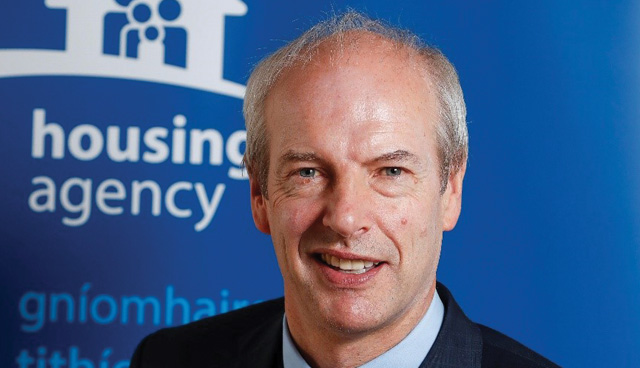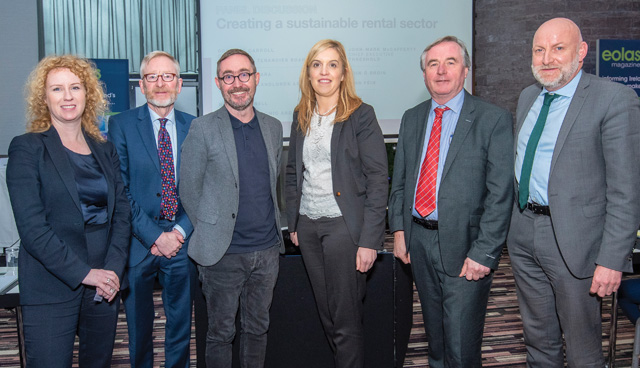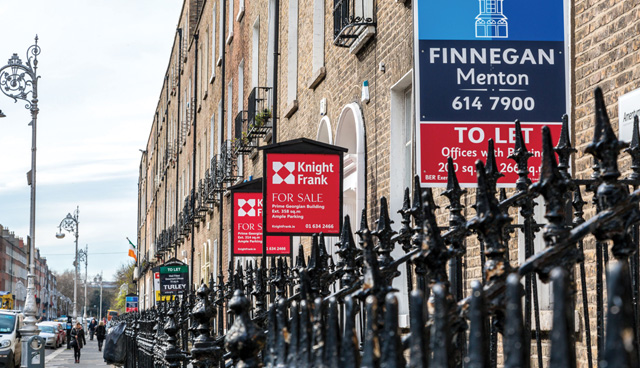
Rebuilding Ireland: Where are we now?
17th May 2019
John O’Connor, Housing Agency: Foreword
21st May 2019Reflecting on progress: Minister Eoghan Murphy TD


We are approaching three years since the launch of Rebuilding Ireland, so now is a good time to reflect on the progress we have made and the challenges that remain, writes Minister for Housing, Planning and Local Government Eoghan Murphy TD.
It is clear we are in the midst of a deep housing crisis. As Minister for Housing, Planning and Local Government I am responsible for fixing this crisis. Unfortunately, there is no easy solution to such a complex problem — improvements will not always be linear and we will face setbacks. However, real progress is being made.
A lack of supply is at the root of our housing issues, and Rebuilding Ireland is now substantially increasing the supply of new homes – both private and social. Last year over 18,000 new homes were built. In addition, more than 2,500 homes were brought out of long-term vacancy, and almost 800 dwellings in unfinished housing developments were completed, meaning the number of new homes available for use reached almost 21,500 last year, up by nearly 20 per cent on the previous year.
But we need to drive new builds higher again in 2019. This year the Government is investing €2.4 billion in housing — more than any other previous government has in a single year. That will help us deliver 10,000 new social homes, and overall we expect around 25,000 new homes to be made available across the country in 2019. That’s a lot of keys for new homes for families in homelessness and housing insecurity, or for young people and families struggling to rent and save.
Rebuilding Ireland also aims to remove some of the barriers to building more homes, more quickly and at more affordable prices. The reforms we have made include fast track planning, new guidelines in apartment building, and a streamlining approval process for social housing. These reforms are working — we are ahead of our general housing supply targets — but we will continue to do everything we can to accelerate the building of much needed new homes.
I also accept that right now people are paying too much to rent a home — it is imposing an unsustainable burden on many households, especially in Dublin and other urban areas. We have introduced rent caps — and while they have had some success in moderating rent increases, we are also committed to strengthening and extending them. Changes in legislation this summer will tighten the rules around rent cap exemptions, make sure any breach of the rent caps can be sanctioned, create greater transparency around rent levels and extend rent caps to student accommodation.

“Improvements will not always be linear and we will face setbacks. However, real progress is being made.”
In addition, we are strengthening security of tenure provisions for tenants, and also extending notice to quit periods. These reforms are the most significant rental sector reforms in recent years, and they will bring greater affordability and security for people who are renting.
And of course, we will continue to prioritise those most vulnerable in this crisis: people sleeping rough and those in emergency accommodation. Resources dedicated to homelessness haven risen to €146 million this year, money that will help us move 5,000 adults and their children out of homelessness.
The Government’s duty towards all those across the country whose lives have been affected by this crisis is to make sure that the progress we’ve made is built upon. We have more to do — my job is to get it done.




